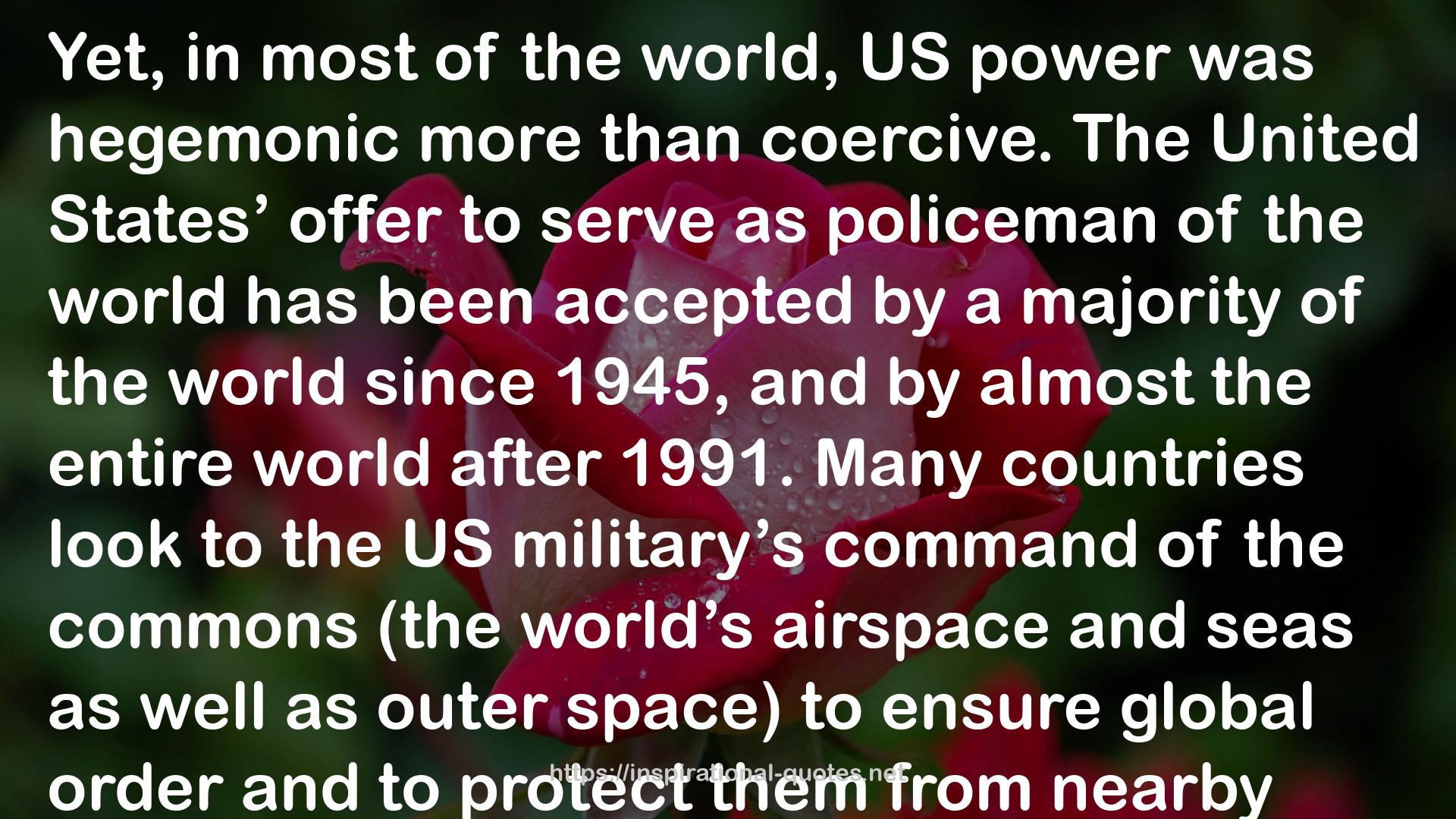" Yet, in most of the world, US power was hegemonic more than coercive. The United States’ offer to serve as policeman of the world has been accepted by a majority of the world since 1945, and by almost the entire world after 1991. Many countries look to the US military’s command of the commons (the world’s airspace and seas as well as outer space) to ensure global order and to protect them from nearby regional powers that, in the absence of American military dominance, could dominate or invade their neighbors. Thus, communist Vietnam, after decades of fighting and millions of deaths to free itself from US domination, eagerly signed up for the Trans-Pacific Partnership and is considering allowing the United States to base warships at Cam Ranh Bay to deflect Chinese power—and of course each and every Eastern European country begged for admission to NATO and the EU, just as Western European governments positioned themselves after World War II within a geopolitical and economic structure designed and controlled by the United States in return for protection from the USSR. American aid through the Marshall Plan came after the recipient governments had already cast their lot with the United States. "
― , First Class Passengers on a Sinking Ship: Elite Politics and the Decline of Great Powers
